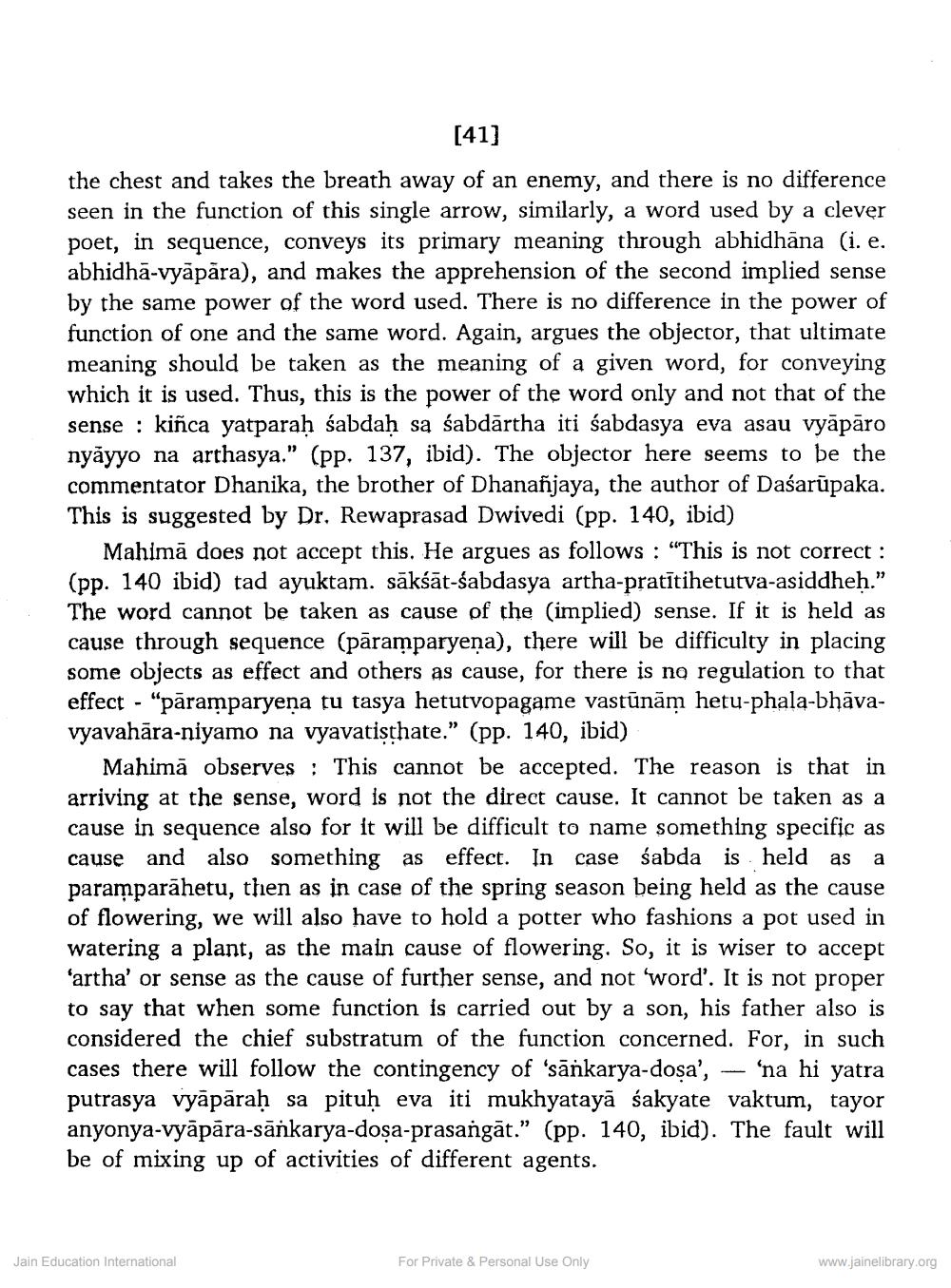________________
[41]
the chest and takes the breath away of an enemy, and there is no difference seen in the function of this single arrow, similarly, a word used by a clever poet, in sequence, conveys its primary meaning through abhidhāna (i. e. abhidhā-vyāpāra), and makes the apprehension of the second implied sense by the same power of the word used. There is no difference in the power of function of one and the same word. Again, argues the objector, that ultimate meaning should be taken as the meaning of a given word, for conveying which it is used. Thus, this is the power of the word only and not that of the sense : kiñca yatparah sabdah są śabdārtha iti sabdasya eva asau vyāpāro nyayyo na arthasya." (pp. 137, ibid). The objector here seems to be the commentator Dhanika, the brother of Dhananjaya, the author of Dasarūpaka. This is suggested by Dr. Rewaprasad Dwivedi (pp. 140, ibid)
Mahimā does not accept this. He argues as follows : "This is not correct : (pp. 140 ibid) tad ayuktam. sāksāt-sabdasya artha-pratītihetutva-asiddheh." The word cannot be taken as cause of the implied) sense. If it is held as cause through sequence (pāramparyena), there will be difficulty in placing some objects as effect and others as cause, for there is no regulation to that effect - "pāramparyena tu tasya hetutvopagame vastūnām hetu-phala-bhāvavyavahāra-niyamo na vyavatișthate.” (pp. 140, ibid)
Mahimā observes : This cannot be accepted. The reason is that in arriving at the sense, word is not the direct cause. It cannot be taken as a cause in sequence also for it will be difficult to name something specific as cause and also something as effect. In case sabda is held as a paramparāhetu, then as in case of the spring season being held as the cause of flowering, we will also have to hold a potter who fashions a pot used in watering a plant, as the main cause of flowering. So, it is wiser to accept 'artha' or sense as the cause of further sense, and not 'word'. It is not proper to say that when some function is carried out by a son, his father also is considered the chief substratum of the function concerned. For, in such cases there will follow the contingency of 'sānkarya-dosa', - 'na hi yatra putrasya vyāpāraḥ sa pituḥ eva iti mukhyatayā sakyate vaktum, tayor anyonya-vyāpāra-sānkarya-dosa-prasangāt.” (pp. 140, ibid). The fault will be of mixing up of activities of different agents.
Jain Education International
For Private & Personal Use Only
www.jainelibrary.org




